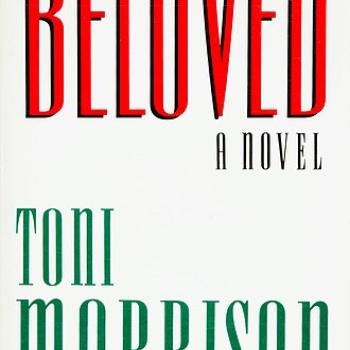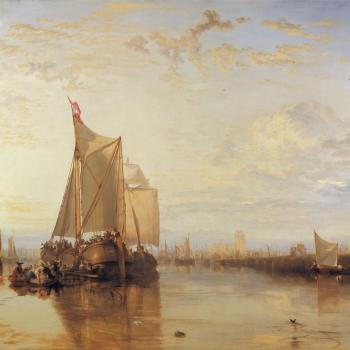Students develop close reading skills connecting sound with sense in the poem "Those Winter Sundays," and write an original text that reflects their new learning.

Sonic Patterns: Exploring Poetic Techniques Through Close Reading

Grades
|
Narrative Structure and Perspectives in Toni Morrison's Beloved
11 - 12
Lesson Plan
| Standard Lesson
Using Beloved as a model of a work with multiple narrative perspectives, students use a visualizing activity and close reading to consider ways in which subjective values shape contradictory representations.

Grades
|
There Are No Small Parts: Minor Characters in David Copperfield
9 - 12
Lesson Plan
| Standard Lesson
This lesson capitalizes on students' interest in social networking by asking students to build an online profile for a minor character in Charles Dickens' David Copperfield.
Grades
|
Joining the Conversation about Young Adult Literature
9 - 12
Lesson Plan
| Standard Lesson
Students create a persuasive case calling for the adoption of a particular young adult literature title into their school's language arts curriculum by writing letters or speeches.

Grades
|
Preparing for the Journey: An Introduction to the Hero Myth
9 - 12
Lesson Plan
| Standard Lesson
Students read a variety of picture books that contain elements of the hero's journey and use an online interactive tool to analyze the stories.

Grades
|
Looking for the Byronic Hero Using Twilight's Edward Cullen
9 - 12
Lesson Plan
| Standard Lesson
Using the character of Edward Cullen from the Twilight series, this lesson introduces the Byronic hero and asks students to compare the Byronic hero to the traditional hero and villain.

Grades
|
"America the Beautiful": Using Music and Art to Develop Vocabulary
K - 2
Lesson Plan
| Unit
Students engage in a rich study of vocabulary words from the song "America the Beautiful," using music and art.

Grades
|
Blurring Genre: Exploring Fiction and Nonfiction with Diary of a Worm
6 - 8
Lesson Plan
| Standard Lesson
After reading several examples of how a published author incorporates facts in fiction writing, students research a topic of their choice and write fictional diary entries that incorporate factual information.

Grades
|
Literacy Centers: Getting Started
K - 2
Lesson Plan
| Recurring Lesson
This lesson gives teachers resources and guidance to create reading, listening, computer, and poetry Literacy Centers in their own classrooms.

Grades
|
Building Vocabulary: Making Multigenre Glossaries Based on Student Inquiry
6 - 8
Lesson Plan
| Standard Lesson
Students choose unfamiliar words from their reading and create a multigenre, multimodal glossary of terms.

Grades
|
An Exploration of Romanticism Through Art and Poetry
9 - 12
Lesson Plan
| Unit
Students use art and poetry to explore and understand major characteristics of the Romantic period.

Grades
|
Grocery Store Scavenger Hunt: Researching Nutrition to Advertise for Health
6 - 8
Lesson Plan
| Unit
After researching nutrition and analyzing food advertisements, students work in cooperative groups to create their own advertisements for food products.

Grades
|
Moving Toward Acceptance Through Picture Books and Two-Voice Texts
3 - 5
Lesson Plan
| Unit
Students read and discuss literature about intolerance and diversity. They work with a partner to write two-voice poems that illustrate situations of intolerance at their school and suggest a step toward acceptance.

Grades
|
Young Adult Literature about the Middle East: A Cultural Response Perspective
6 - 8
Lesson Plan
| Standard Lesson
Adapted from Sheryl L. Finkle and Tamara J. Lilly's Middle Ground: Exploring Selected Literature from and about the Middle East, this variation on traditional literature circles exposes students to a variety of young adult fiction from and about the Middle East. Students read and share research and responses in collaborative groups. At the end of the lesson, they write a letter to welcome an immigrant student to their school and community.

Grades
|
Modeling Academic Writing Through Scholarly Article Presentations
9 - 12
Lesson Plan
| Unit
Students prepare an already published scholarly article for presentation, with an emphasis on identification of the author's thesis and argument structure.

Grades
|
Teaching Student Annotation: Constructing Meaning Through Connections
9 - 12
Lesson Plan
| Standard Lesson
Students examine text closely and create annotations to make personal and meaningful connections with the work.

Grades
|
Swish! Pow! Whack! Teaching Onomatopoeia Through Sports Poetry
6 - 8
Lesson Plan
| Standard Lesson
Students explore poetry about sports, looking closely at the use of onomatopoeia. After viewing a segment of a sporting event, students create their own onomatopoeic sports poems.

Grades
|
Tracking the Ways Writers Develop Heroes and Villains
9 - 12
Lesson Plan
| Unit
Everyone knows that Star Wars character Darth Vader is a villain. This lesson asks students to explore how they know such things about heroes and villains they encounter in texts.

Grades
|
And I Quote: A Punctuation Proofreading Minilesson
9 - 12
Lesson Plan
| Minilesson
Students review the basic conventions for using quotations from literature or references from a research project, focusing on accurate punctuation and page layout, then apply the conventions to their texts.

Grades
|
Constructing New Understanding Through Choral Readings of Shakespeare
9 - 12
Lesson Plan
| Standard Lesson
After reading The Tempest or any other play by William Shakespeare, students work in small groups to plan, compose, and perform a choral reading based on a character or theme.